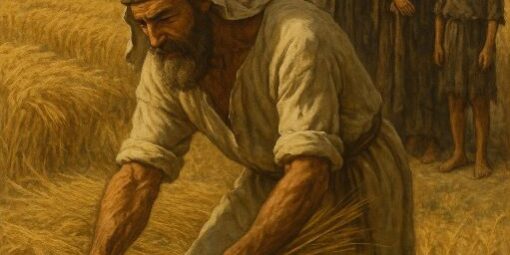From The Rabbi’s Study…Shabbat, May 16,17, 2025/ 18,19 Iyar 5785 (Omer 33, 34)
Lag B’Omer will be celebrated on Shabbat so have a wonderful BBQ dinner!
The Torah portion continues with laws regulating the lives of the priests. These are followed by laws concerning donations and offerings that are acceptable for the sanctuary, qualifications for sacrificial animals, the major festivals, the lamps and showbread (challah) of the tabernacle, and laws dealing with profanity, murder, and the maiming of others.
Key concepts and values are Kiddush HaShem/sanctification of G-d’s name, equality before the law, Lex talionis/an eye for an eye, the mitzvot for sanctification of the priest, prohibition against profaning G-d’s name, and the Counting of the Omer. The Counting of the Omer was to appreciate this momentous experience to the fullest extent, preparing for seven weeks after Passover to when the revelation at Mount Sinai took place. The Omer referred to a sheaf of new barley that was the custom to bring to the Temple in ancient times as an offering for a good harvest.
The first value is from Leviticus 22:23 that states: “You shall not profane My holy Name, but I will be hallowed among the children of Israel.” All Jews should sanctify G-d’s Name through their way of life, and if need be, by martyrdom for the sake of the way of life taught by G-d in the Torah. As Jews we are always on guard to not disgrace the Jewish people or Judaism by improper conduct. The improper conduct will reflect on the entire Jewish people and bring the dishonor of the Name of G-d.
Other concepts are equality before the law and an eye for an eye. Leviticus 24:22 states that “you shall have one manner of law for the stranger as for the homeborn, for I am the Lord your G-d.” Jewish law does not have double standards. Leviticus 24:19-20 deals with compensation for physical harm inflicted by one person upon another. The Talmud (Baba Kamma 84a) does not say to take another person’s eye but reinterprets this law to refer to monetary compensation. This law has been misunderstood through the millennia as cruel and barbaric.
Chapter 23 of Leviticus contains the calendar of all the biblical Festivals, the High Holidays, and the Three Pilgrimage Festivals. In the middle description from the Pilgrimage festivals, we find a verse about leaving the corners of the fields for the poor. This verse is repeated almost verbatim from (Leviticus 19:9-10). The Talmud is curious about the need for this repetition. It asks: Since the Torah is very careful with every word, and never repeats anything without a good reason, what is the lesson to be learned from repeating this verse?
The reason in this case, says the Talmud, is to teach that taking care of the poor is in the eyes of G-d equal to building the Holy Temple and offering sacrifices (including those of the Festivals). Bringing offerings to G-d at the Temple on Shavuot, as an example, is really to purify one’s own heart, and make one worthy of bringing gifts to G-d.
When we hear the reading of the Megillat Ruth on Shavuot there is a special part related to this mitzvah of leaving crops for the poor.
Shabbat Shalom,
Rabbi Helene Ainbinder







